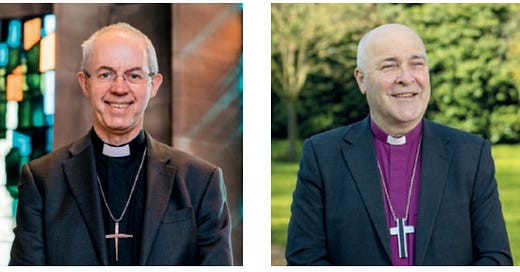A new report issued by the Church of England calls for, in essence, the normalization of singleness, putting it on equal footing with married life. They write:
The Commission believes strongly that single people must be valued at the heart of our society. Jesus’ own singleness should ensure that the Church of England celebrates singleness and does not regard it as lesser than living in a couple relationship. Loving relationships and being able to give and receive love matter to everyone. We have an amazing opportunity to reimagine a diverse society in which all families and loving relationships are valued and strengthened, promoting the stability that enables us all to thrive in a variety of family constellations, including being single.
Note that it’s not just that it’s ok to be single, but we must “celebrate” singleness. As we’ve seen with many other formerly alternative lifestyles, this suggests we will soon be in a situation where singles are specifically celebrated while married couples are downgraded and relegated to the background. Centering singleness will inevitably mean de-centering and peripherizing marriage.
In keeping with the descriptions of single life in the Bible, in which singleness is desired because it allows one’s undivided attention to be devoted to serving God, traditionally singleness was associated with things such as the celibate vocations. Naturally the Church of England specifically rejects that singleness implies celibacy, and they decline to say that singleness should be used for the sake of Christian service.
As the Commission affirmed the importance of love as an essential ingredient in all relationships, we thought about the growing number of people who do not live in a couple relationship or with family members. Singleness can be a deliberate choice – sometimes the right partner has not been found, and sometimes separation, divorce or death has resulted in the loss of a partner. Inevitably, singleness does not necessarily imply celibacy, although this is the choice some single people in faith communities make.
Note that they recognize singleness as potentially resulting from a lifestyle choice. The commission’s report “urges the Church of England” to “Honour and celebrate singleness, whether through choice or circumstance, and recognise the full place of single people within the Church and society.”
Many Americans like to pooh-pooh the Church of England, but this is the same trend we see in the American evangelical church as well. It’s not about pastorally responding to the fact that there are more single people today. Rather, it’s a theological normalization of post-familialism, including singleness as a lifestyle choice, accompanied by calls to center singles and de-center families in ministry, no doubt to be followed by many demands from singles for affirmation, attention, services, etc.
Undoubtedly it’s important to welcome and include singles in the life of the church. But a church, to saying nothing of a society, that embraces a post-familial future is unhealthy. And of course conformed to the world.
I don’t think the people pushing this stuff really understand how unhappy many older singles actually are about their condition - often much unhappier than they let on publicly. Perhaps that’s not everybody, but it’s a lot more of them than people realize. One thing’s for sure, the various pastors who extoll the “gift of singleness” wouldn’t trade their own families for all the gold in Ft. Knox.
Although it will be difficult, we have to be willing to encourage marriage, create church cultures that facilitate marriage, and help people find a path to getting married. This starts with being willing to affirm that marriage with children is the normative path of life.
More: The New York Times published an article about this Church of England report.





I've decided I hate the word "reimagine" and think it should be banned.
Is there still any gold in Fort Knox?
I just spent a few minutes looking on the Church of England's website, while they have a few ministry tabs for youth and children, I could not find anything that specifically offered or talked about supporting families. Yet they have resources available for just about every progressive cause you can imagine. You can tell just by looking for a few minutes the average person active in a CofE church today is older woman with liberal politics who has been widowed or divorced. As an organization, they are past the point they would even know how to offer support to families with kids. They at least have the excuse of being government funded for not thinking about this. The American churches who have gone down this same path can't fall back on that. Very few people in the leadership of these churches even recognize it is a problem.